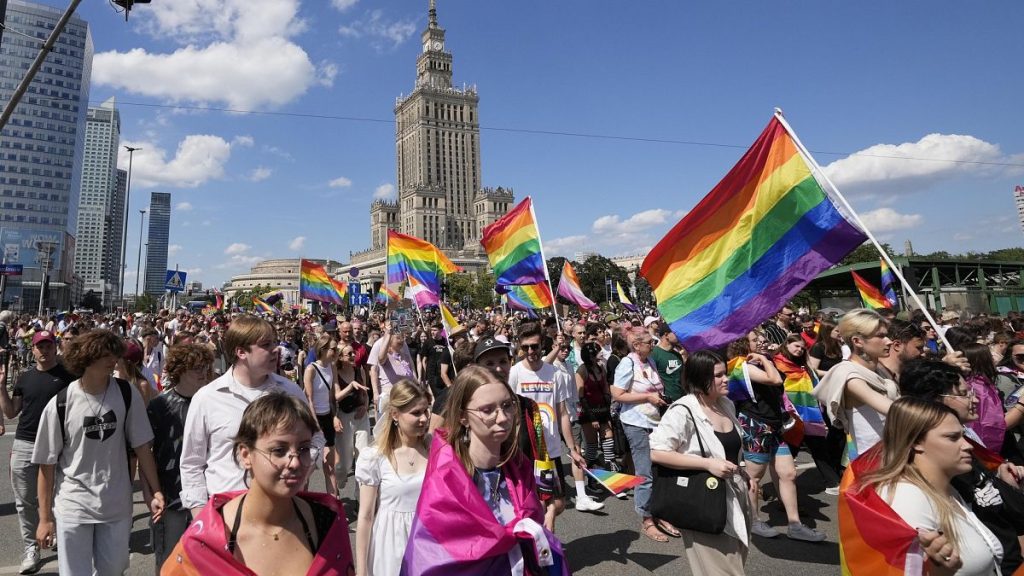Last weekend in Warsaw, a Pride parade drew over 20,000 people, marking a significant shift in the largely conservative and Catholic country of Poland. Organizers have been pushing for LGBTQ rights to be expanded, with the parade serving as more of a protest event than a celebration. For the first time, two government ministers, deputy prime minister Krzysztof Gawkowski and Equality minister Katarzyna Kotula, both from The Left party, participated in the parade. This is a stark contrast to previous years, as Poland has repeatedly been ranked as the worst country in the European Union for LGBTQ rights by the Brussels-based NGO Rainbow Map.
The organizers of the parade, under the slogan “Equality is Now,” are calling for Poland to recognize same-sex marriage, introduce anti-hate speech laws, and end discrimination against the LGBTQ community. Despite progress being made towards introducing same-sex civil partnerships, the legislation must still be approved by other members of the coalition government, including the centre-right Polish People’s Party. The nationalist Law and Justice (PiS) party, which was previously in power, adamantly opposed what they referred to as “LGBTQ ideology.” However, Poland’s new government, led by Donald Tusk, has promised to improve LGBTQ rights, although no legislation has been passed yet.
Currently, Poland does not recognize same-sex marriage and same-sex couples are prohibited from adopting children, in contrast to many other European countries. The parade in Warsaw symbolizes a growing movement towards greater LGBTQ rights in Poland, despite ongoing opposition and discrimination. The participation of government ministers in the parade signals a potential shift in the country’s approach to LGBTQ issues and a greater level of acceptance and support within the government. While progress has been made, there is still work to be done to ensure full equality and protection for the LGBTQ community in Poland.
The LGBTQ community in Poland continues to face challenges and discrimination, with the country’s ranking as the worst in the EU for LGBTQ rights highlighting the urgent need for change. Despite the lack of legal recognition for same-sex relationships and families, the parade in Warsaw serves as a platform for activism and advocacy for LGBTQ rights. The participation of government officials in the parade reflects a growing awareness and support for LGBTQ issues within the political sphere, signaling a potential shift in attitudes towards greater inclusion and equality.
Overall, the Pride parade in Warsaw signifies a positive step towards greater LGBTQ rights in Poland, with the participation of government ministers highlighting a potential shift in the country’s approach to LGBTQ issues. The continued activism and advocacy of the LGBTQ community, along with the support of allies within the government, will be essential in pushing for legal recognition and protection for same-sex couples and families in Poland. Despite ongoing challenges and opposition, the growing visibility and momentum of the LGBTQ rights movement in the country are promising signs of progress towards full equality and acceptance for all individuals, regardless of sexual orientation or gender identity.


